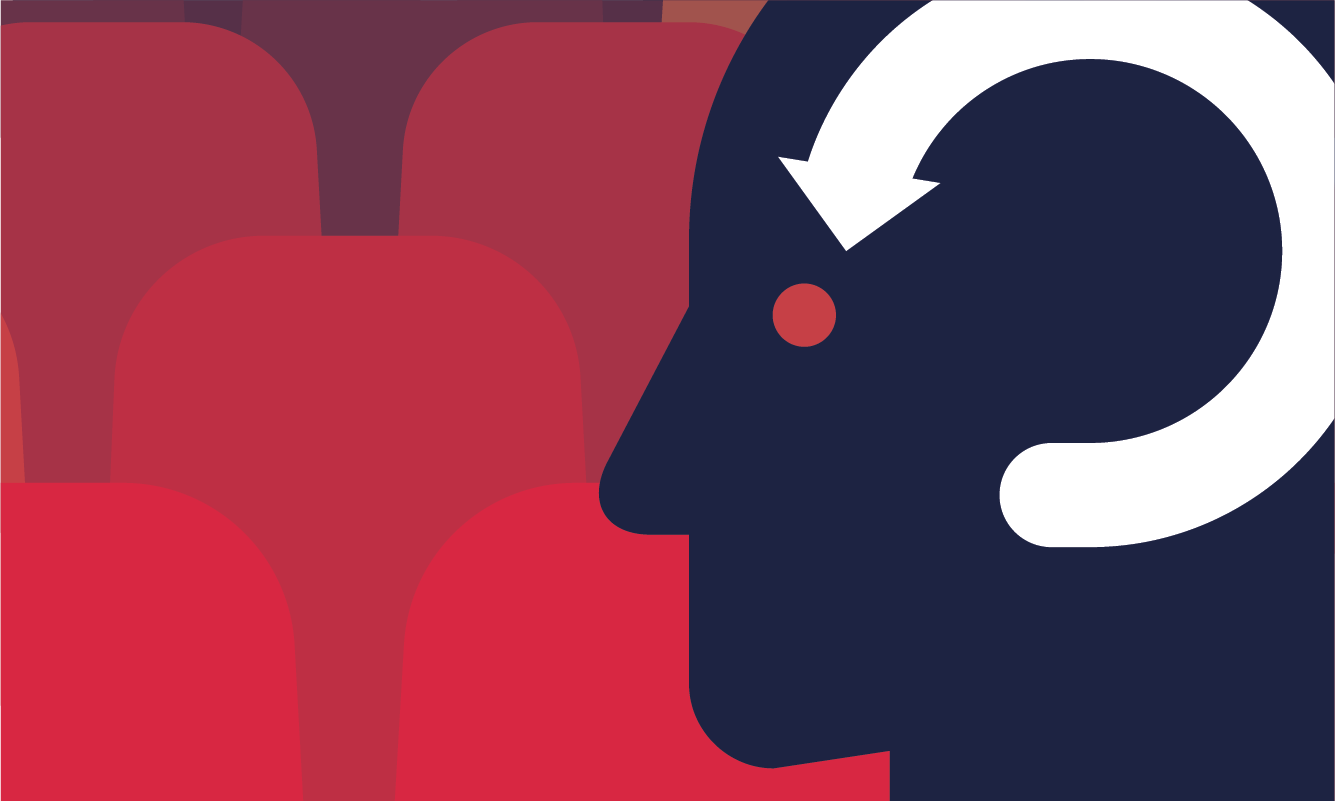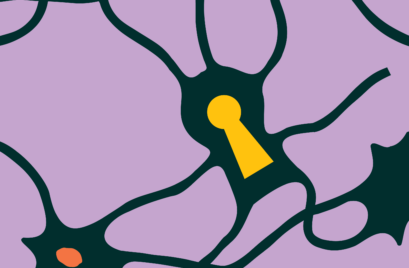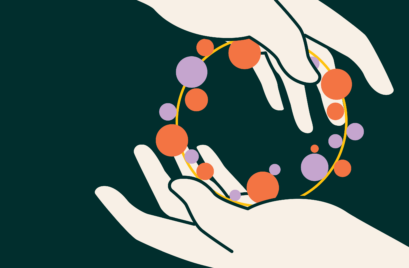
As leaders are increasingly required to facilitate more collaborative, agile workspaces, so too must our skill bases and the focus of our professional development shift. More and more we need to hone our ability to listen, communicate, and learn to influence well, to stay relevant and add value in our rapidly evolving work contexts.
A fundamental component of this is developing our Agile Mindsets. Trans-disciplinary approaches to thinking and communicating can allow us to harness the best of different worlds and incorporate new ideas into our leadership practice.
Agile and the Arts
One of the fundamental principles of an Agile Mindset is creating and responding to change in unpredictable and turbulent environments. It’s about understanding what’s occurring in the environment, identifying the uncertainty we’re facing, and figuring out how to adapt and problem solve as we go along.
This may be easy to understand in theory, but it is another thing to put into practice at a deeply embedded level. So, how do we develop and build this skill?
One area of often untapped intellectual resource for the business world is the Arts. For example, many of the relevant skills we need to draw upon as a contemporary leader can be learned through the theatrical and musical art of ‘Improv’, a practice whose performative aspect can make us feel uncomfortable. But as is so often the case, it’s only in the process of moving outside our comfort zone that growth can occur.
In this ambiguous space, we can reap the benefits of staying open to transdisciplinary viewpoints and, increasingly, the research backs this up. The art of Improv, once the sole domain of musicians or comedians, presents a new toolkit and immense potential benefits for everyone from scientists to business leaders.
Improv: Bypass the Censor
At its core, the art of Improv is the art of creativity under pressure. Improv artists follow the golden rule of “Yes…and!” “Yes…and.” Essentially, this means saying yes to offers, never blocking (rejecting) offers or ideas from another team member, and building a performance, without knowing where it will go.
Improv artists expand on this concept, stating that we cannot “end game.” This means that when creating, we can’t plan an ending – we must embrace the tension and discomfort of unpredictability and let our creativity flow without fear of failure. Improv artists enter a performance without a planned program and spontaneously create a unique show. They are not reciting a practised set, and yet these artists are still able to produce high quality art.
So, what is going on here?
Scientists have begun to examine the neural component of Improv through studies using fMRI. In research conducted with rap artists “freestyling” lyrics, we’ve discovered that there is a functional change in their neural networks that bypasses normal behaviour checks and allows creative spontaneity. Similar findings were made with jazz artists practising improvisation in their art.
We can understand from these findings two key aspects to this practice. Firstly, a deep engagement with the creative sections of the brain. And, secondly, a turning off or bypassing of the part of the brain which controls complex decision making and moderates “appropriate” social behaviour. In particular, the artist’s creativity flows unaffected by any sense of fear or trepidation as to how the performance might be perceived.
In business, it is often this “rules” centre of the brain, which is an obstacle to creative solutions and limits our possibilities for change. It also may be blocking genuine engagement with and influence on those around us. By practising an Improv mindset in the way that we problem solve and communicate with our colleagues, we are likely to arrive at more creative and interconnected outcomes.
These findings are further supported by Positive Psychology research examining creativity in the brain. Studies suggest that positive emotions such as playfulness, a key principle of Improv, help break our concrete rules-driven neural pathways and open them up to new possibilities and innovative thinking. By fostering playful states in the workplace through Improv games, we can help broaden and build creativity and visioning, essential components of an Agile Mindset.
Improv: Meet the Other
We also stand to gain from Improv by applying it to interpersonal relationships and organisational outcomes. Improv comedians, for example, often practise in groups bouncing jokes off each other. For this to be successful, the participants must be completely open to whatever thought comes from the other and respond positively in kind, using the “Yes…and” rule. This sort of free-flowing openness is another key to brainstorming well in a leadership or organisational context.
NASA has taken a deep interest in the interpersonal benefits of Improv or ‘arts-based transdisciplinary interventions’ in the workplace, previously staging an improvisational theatre workshop program for a number of its staff. The purpose of the session was to use Improv to breakthrough resistance to open feedback, which they believed may have been a potential contributor to project failures.
Relying on similar principles described above, the reduced sense of inhibition of participants in the workshop made them more likely to express perspectives, which would have otherwise been censored or withheld. The self-reported experience of the participants was overwhelmingly (93%) of the view that certain truths were uncovered regarding the organisational environment, which had not been previously aired.
By positioning team members in their creative Improv “space”, we are more likely to truly meet that person and hear their viewpoints. Leaders and organisations have much to gain from encouraging this practice to breakdown inhibitions and enhance effective communication and connection. The comedic and interpersonal aspect of the art also encourages bonding and relaxation. In a world of countless surveys and wellbeing scores, perhaps a genuine encounter facilitated by Improv may be the best way to meet each other.
Improvisation for Agile Mindsets in the Workplace
So, as leaders, how can we take advantage of this powerful skill to enhance our agility and connection in complex organisations?
- Prioritise Creativity – Creativity is both an inherent capacity and a practise. The more opportunities we give ourselves, and those people around us, to nourish creativity, the better equipped we are to thrive in any future.
- Mute the Censor – Although the rules centre of our brain has many useful purposes, sometimes it needs to take a backseat. When we are thinking about organisational growth and how to access the opportunities of change, we can’t let the censor limit the possibilities. Instead, cultivate an Improv “flow”, so that our creativity can run without judgement – there are no wrong answers in Improv.
- Foster the Encounter – Create the space for spontaneous interaction and the lowering of inhibitions in the workplace. We may be surprised what we discover. Here are some classic Improv games to use that promote collaboration.
Utilising Improv as a way of developing Agile Mindsets is an evidence-based practice that can be strategically employed. It provides us with skills to better connect with diverse teams and stakeholders in an ever-evolving world, through the power of creativity, innovation, and collaboration.
If we embrace the Improv “space” of ambiguity and opportunity, we can harness a deep resource of creativity within us and give it the scope to influence and change our work.
Need More Help?
Keen to find out more about embracing the improv “space” of ambiguity and opportunity? Performance Frontiers help guide leaders to harness a deep resource of skills within self to give scope to influence and change diverse teams and stakeholders in an ever-evolving world. Speak to us today about how we can partner with you to use improv to develop Agile mindsets and ultimately better connect through the power of creativity, innovation, and collaboration.
References
- Banks, Amanda et al. “The Truth is Out There: Insights from Improv with NASA.” Conference paper delivered at AIAA SciTech Forum 2021.
- Bartlett, Catherine. “Want to Be a Better Scientist? Take an Improv Class.” Scientific American, 12 April 2019, accessible at: https://blogs.scientificamerican.com/observations/want-to-be-a-better-scientist-take-an-improv-class/
- Kaufman, Sarah L., Orenstein, Jayne, Hashemi, Sarah, Hart, Elizabeth and Tan, Shelly, “Art in an Instant: The Secrets of Improvisation,” Washington Post, 7 June 2018, accessible at: https://www.washingtonpost.com/graphics/2018/lifestyle/science-behind-improv-performance/
- Lockwood, Renee. “Playfulness in adults: an examination of play and playfulness and their implications for coaching.”
- Coaching: An International Journal of Theory, Research and Practice, 16 July 2016, accessible at: https://www.tandfonline.com/doi/abs/10.1080/17521882.2016.1268636
While every effort has been made to provide valuable, useful information in this publication, this organisation and any related suppliers or associated companies accept no responsibility or any form of liability from reliance upon or use of its contents. Any suggestions should be considered carefully within your own particular circumstances, as they are intended as general information only.








